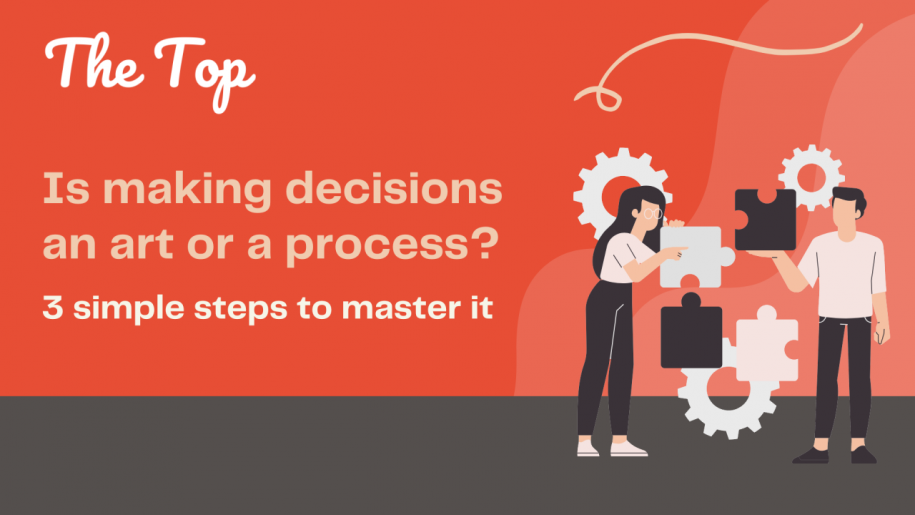Is making decisions an art or a process? 3 simple steps to master it
Team managers and leaders make several decisions every day. Big or small. It may include everything from designing the goals for the next quarter to choosing the right candidate for their team. Managers are the ones who are armed with all the information and skills needed to make educated decisions that enable the progress of the team. The decision-making process involves choosing one alternative over the rest after a careful evaluation. This includes gathering the essential information and drawing comparisons after a detailed analysis. Afterward, you must act on the resultant decision and handle its effects. Your choices impact the whole team in many ways. At times, they can be the factor that makes or breaks the game for the team.While good decision-making opens avenues of growth for the organization, bad decisions can put you on the back foot by creating conflicts and harming the environment. Therefore, we cannot negate the importance of quality decision-making in any team. Although decision-making is a buzzword we hear often, you might be wondering what actually differentiates a good decision-maker from a bad one. And further, how can you become a better decision-maker as a manager?

You might have noticed that decision-making involves putting considerable focus on the process. A set decision-making framework will help you immensely make your decisions efficient. When you guide a team, your context and critical values will remain constant, ensuring adherence to these can become a part of your framework. You can similarly develop a framework that suits your needs. Apart from making the process simpler, it will also help you add some speed. And, to take it faster further, you can turn to mental models.

You can learn more about How Mental Models Help In Decision Making As A Manager! While making any decisions, we try to be our rational best. But, as humans, we tend to fall back to intuitions and heuristics without even realizing it. It might be a surprise that people use intuition much more than logic in decision-making. Our frameworks can suffer from biases that we see as norms.
These issues can arise with managers and leaders too. When a person becomes a manager, they also become an influencer for their team. The bias held by a manager can thus affect the team’s environment, the flow of work, and most importantly – the employees. Biases in a manager can take many forms in the workplace, ranging from unreasonable favoritism to inexplicable discrimination.


